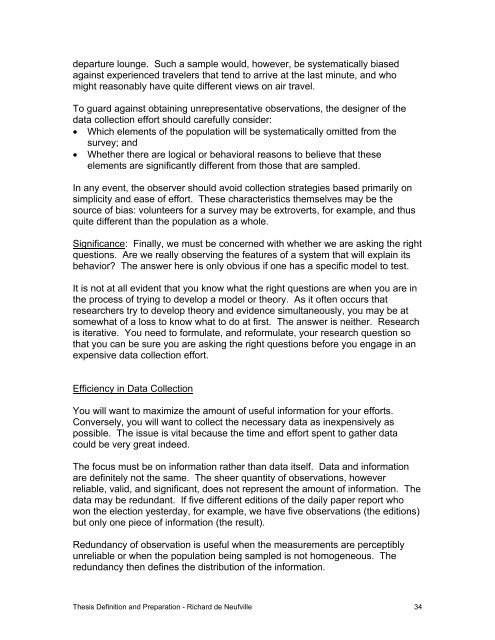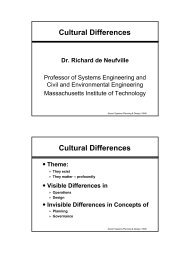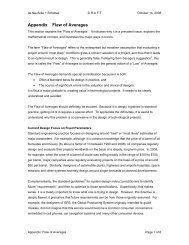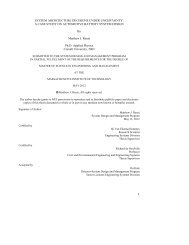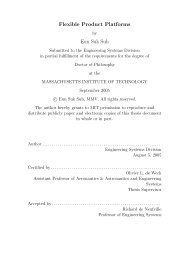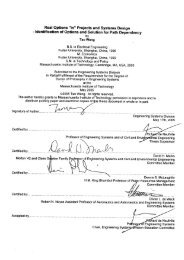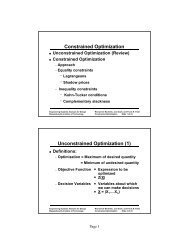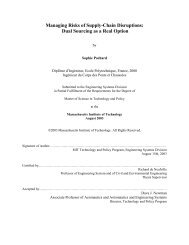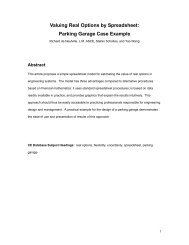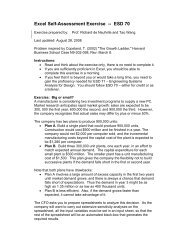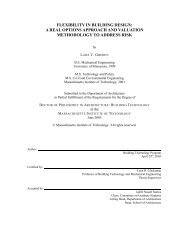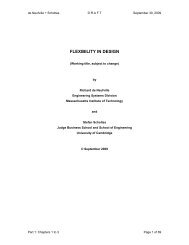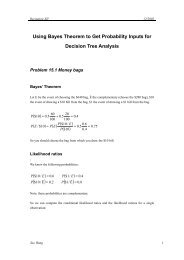Richard de Neufville's TPP SM Thesis Manual - Title Page - MIT
Richard de Neufville's TPP SM Thesis Manual - Title Page - MIT
Richard de Neufville's TPP SM Thesis Manual - Title Page - MIT
- No tags were found...
You also want an ePaper? Increase the reach of your titles
YUMPU automatically turns print PDFs into web optimized ePapers that Google loves.
<strong>de</strong>parture lounge. Such a sample would, however, be systematically biasedagainst experienced travelers that tend to arrive at the last minute, and whomight reasonably have quite different views on air travel.To guard against obtaining unrepresentative observations, the <strong>de</strong>signer of thedata collection effort should carefully consi<strong>de</strong>r:• Which elements of the population will be systematically omitted from thesurvey; and• Whether there are logical or behavioral reasons to believe that theseelements are significantly different from those that are sampled.In any event, the observer should avoid collection strategies based primarily onsimplicity and ease of effort. These characteristics themselves may be thesource of bias: volunteers for a survey may be extroverts, for example, and thusquite different than the population as a whole.Significance: Finally, we must be concerned with whether we are asking the rightquestions. Are we really observing the features of a system that will explain itsbehavior? The answer here is only obvious if one has a specific mo<strong>de</strong>l to test.It is not at all evi<strong>de</strong>nt that you know what the right questions are when you are inthe process of trying to <strong>de</strong>velop a mo<strong>de</strong>l or theory. As it often occurs thatresearchers try to <strong>de</strong>velop theory and evi<strong>de</strong>nce simultaneously, you may be atsomewhat of a loss to know what to do at first. The answer is neither. Researchis iterative. You need to formulate, and reformulate, your research question sothat you can be sure you are asking the right questions before you engage in anexpensive data collection effort.Efficiency in Data CollectionYou will want to maximize the amount of useful information for your efforts.Conversely, you will want to collect the necessary data as inexpensively aspossible. The issue is vital because the time and effort spent to gather datacould be very great in<strong>de</strong>ed.The focus must be on information rather than data itself. Data and informationare <strong>de</strong>finitely not the same. The sheer quantity of observations, howeverreliable, valid, and significant, does not represent the amount of information. Thedata may be redundant. If five different editions of the daily paper report whowon the election yesterday, for example, we have five observations (the editions)but only one piece of information (the result).Redundancy of observation is useful when the measurements are perceptiblyunreliable or when the population being sampled is not homogeneous. Theredundancy then <strong>de</strong>fines the distribution of the information.<strong>Thesis</strong> Definition and Preparation - <strong>Richard</strong> <strong>de</strong> Neufville 34


